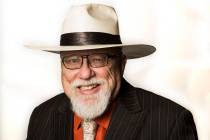There’s no hiding from cancer
We were in the fifth grade when my friend David started feeling tired all the time. Instead of wanting to play ball, he wanted to sleep.
He complained that his arms and legs hurt. Instead of eating as many of my mother's cookies as he could when he came over to my house after school, my mother had to coax him into eating one or two.
He said "some kind of bumps" had grown in his neck and under his arms.
A couple of months after his mom and dad took him to doctors to find out what was wrong, they called my parents, who relayed the news to me: David was dying of leukemia, a form of cancer.
My parents explained to me that David's tiredness, pain and lack of appetite were all symptoms of the disease. So were the "bumps" that he talked about, which were actually swollen lymph nodes.
Before the school year was over -- I visited him in the hospital -- he was dead.
That's what almost always happened to kids with leukemia in the 1950s.
I went to the funeral and heard little of what was said. I couldn't stop crying.
What happened to David affected me in many ways. For years, whenever I felt really tired, I was sure I had leukemia. Ditto for the swollen lymph nodes that often accompanied my tiredness, colds or other minor illness.
Well into adulthood, I did all I could to escape any media reports on cancer. I knew what it could do and it turned me inside out. When I finally did read a piece on the disease decades later, it was for background I was doing for a story.
A phone call I received recently from my 27-year-old daughter in Texas made me think about David and my irrational response to cancer.
She soon will undergo cancer surgery.
I would like to say I no longer react irrationally to a disease that kills more than 560,000 people in the United States each year, or about 1,500 people each day. But I cannot.
Yes, I know strides have been made against the disease -- survival rates for the kind of leukemia David had, for example, are now around 90 percent. But it's also true that while the slashing, poisoning and burning of malignancies may extend life, it often leaves many patients so wounded they wonder whether the hoped-for cure is worse than the disease.
I suspect that if I'd had an M-16 or, better yet, a 50-caliber machine gun in the house after my daughter's call, I would have gone into the desert with it and tried to kill the disease until I was too tired to fire any more. Hell, in Vietnam, my buddies and I opened up with our M16s on mosquitoes after being driven nuts by their incessant biting.
Fear, frustration and helplessness -- common reactions to cancer from its victims and those close to them -- breed an irrationality that you sometimes have to work hard to rein in. Anger flares, depression paralyzes.
As it was, when my conversation with my daughter was over -- she told me not to worry because "they caught it early" -- I let out a string of profanities that may have been heard on Mars.
What drives you up the wall about the disease is that so many people are doing all they can to live healthy lives and they still get hit with it. I've written often about people who come down with some form of the disease, yet they've exercised, never smoked, drank in moderation and tried to eat healthy.
A concert violinist nearly finished with her doctorate, my daughter has done all the "right" things to avoid cancer and still must undergo the knife. Like me, she tends to think that studies pointing to unnecessary chemicals in our food causing cancer are now far too substantial to ignore.
She's played at the Kennedy Center, the Library of Congress, the best concert halls in Russia, China, Italy and Germany. And now, just as her future never looked brighter, she has to worry about something growing inside her. Sleep doesn't come easy for her, or for her parents.
Her battle today makes me pine so for the good old days, when I drove through a snowstorm in the middle of the night for a prescription that made my little girl well. And it also has me doing what most parents do when they cannot give advice or money to help keep their children well.
I pray.
Paul Harasim is the medical reporter for the Las Vegas Review-Journal. His column appears Mondays. Harasim can be reached at pharasim@reviewjournal.com or 702-387-2908.

















